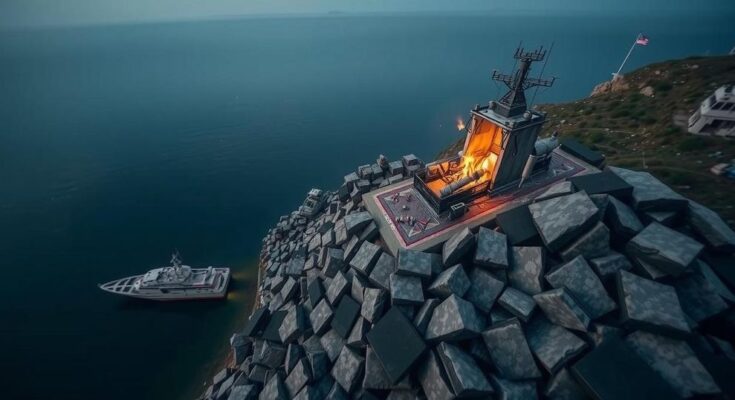The Russian military has increased its presence in southern Syria to prevent Israeli escalations in the Golan Heights, reinforcing observation posts in Daraa and Quneitra. This move coincides with Israel’s construction of a separation wall, which the UN has deemed in violation of a longstanding ceasefire agreement. Former Israeli defense minister Avigdor Lieberman warned of potential escalations if Syria is used as a base for hostile activities. Russian forces aim to maintain stability and security amid rising tensions.
On November 19, Lebanese newspaper Al Akhbar reported that the Russian military has augmented its presence in southern Syria through nine observation posts established in coordination with the Syrian government. The objective of this military reinforcement is to deter potential Israeli escalations in the Golan Heights region, which has historically been a point of contention between Israel and Syria.
Moscow’s forces have strengthened their posts located in Daraa and Quneitra governorates, areas adjacent to the Israeli-occupied Golan Heights. Israel has recently renewed its efforts to construct a “separation wall” along the disengagement zone, a project reminiscent of barriers established along its borders with Lebanon, Egypt, Gaza, and in the West Bank. The United Nations has accused Israel of violating a longstanding ceasefire agreement with Syria, citing its initiation of construction activities on the wall. Furthermore, satellite images from the Associated Press have illustrated extensive development and road paving extending for approximately 7.5 kilometers along the Alpha Line, under the protection of armored vehicles and tanks.
Former Israeli defense minister Avigdor Lieberman expressed concerns over Syria being utilized as a logistical hub for hostile forces, stating, “If Syria continues to be used as a logistical base for our enemies, we will simply seize the Syrian part of Mount Hermon and will not relinquish it until further notice.”
The ongoing violations by Israeli forces occur alongside heightened coordination between Russian and Syrian military operations aimed at combating Western-backed extremist factions throughout the region. Reports indicate that Russian troops are engaging in aerial and terrestrial surveillance to bolster security, facilitate the return of displaced persons, and maintain overall stability. Historically, this area had been home to Israeli-backed militants until control was reestablished under a Russia-mediated disengagement agreement.
Haidar Mustafa, a columnist for The Cradle, asserts, “All Israeli actions in the Golan, including the imposition of Israeli citizenship, settlement expansions, and attempts to breach the disengagement zone to construct a separation wall, are still today considered flagrant violations of international law.”
The frequency of Israeli airstrikes on Syrian territory has sharply increased since the intensification of the conflict in Lebanon in late September, leading to near-daily attacks in key urban centers. Notably, some airstrikes have occurred in close proximity to Russia’s Hmeimim airbase in Latakia, compelling Russian forces to activate their air defense systems.
The situation in Syria, particularly near the Golan Heights, is characterized by a complex interplay of military, political, and historical factors. The Golan Heights has been a point of conflict since Israel captured it during the Six-Day War in 1967. This region remains crucial for both Syrian sovereignty and Israeli security concerns, contributing to ongoing tensions. Russia’s involvement, particularly its recent military reinforcements, reflects its strategic interest in maintaining stability in Syria and countering Israeli operations. Additionally, Israel’s construction efforts in the Golan Heights have been met with international criticism and accusations of violating ceasefire agreements, complicating the geopolitical landscape further.
In summary, the bolstering of Russian military presence in southern Syria aims to mitigate Israeli operations in the Golan Heights, as tensions continue to escalate following Israel’s construction of a separation wall deemed a violation of international law. The increased cooperation between Russian and Syrian forces highlights their joint efforts to restore stability in the region, while also facing the reality of ongoing Israeli airstrikes. Thus, the situation remains fraught with potential for further conflict, influenced by both regional dynamics and international legal considerations.
Original Source: thecradle.co




